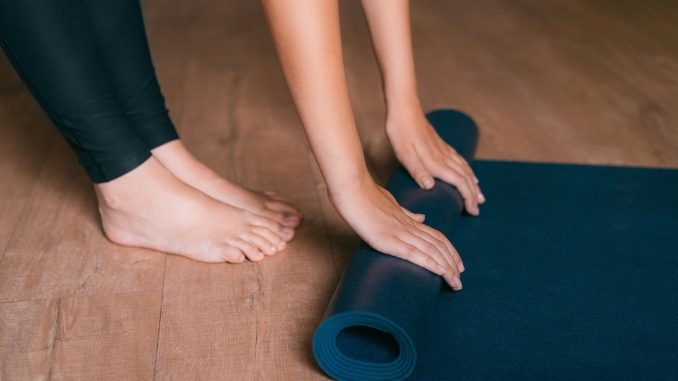Keeping your heart and body healthy is important. A strong cardiovascular system is essential for maintaining optimal mental and physical health, reducing the risk of congenital heart defects, and improving longevity.
When faced with challenges such as a leaky heart, tricuspid valve, and mitral valve prolapse, the importance of cardiovascular fitness becomes even more important. In this article, we'll address the complexities of cardiovascular disease prevention, explain what happens with leaky heart valves, and look at the best exercise for leaky heart valve.
Understanding Cardiovascular Fitness and Its Importance

Cardiovascular or aerobic fitness is essential for overall health, involving the heart, lungs, and blood vessels delivering oxygen to muscles during sustained physical activity. It positively impacts daily function, exercise, and health conditions.
Regular cardiovascular and aerobic exercise also enhances the efficiency of the cardiovascular system, leading to enhanced blood flow, decreased blood pressure, and lessening the likelihood of developing heart problems.
It also benefits mental health by relieving stress and anxiety, promoting better sleep, and enhancing cognitive function. Maintaining strong cardiovascular fitness is crucial for individuals with a leaky heart valve.
It helps compensate for the compromised valve function by improving overall heart function and circulation. This mitigation can reduce symptoms such as fatigue and shortness of breath.
Additionally, a robust cardiovascular system aids in adapting to changes in blood flow and pressure caused by a leaky valve, contributing to increased resilience and overall quality of life.
What is a Leaky Heart Valve?

A heart valve with leakage occurs when one or more heart valves fail to close properly, allowing blood to flow backward. Manifestations vary based on severity and the affected valve, including fatigue, shortness of breath, chest pain, and palpitations.
The aortic and mitral valves are commonly affected. Causes of valvular heart disease include congenital disabilities, age-related changes, infective endocarditis, rheumatic fever, or other heart conditions.
The condition can be asymptomatic or significantly impact daily life. Treatment depends on severity, from medication to surgical intervention, determined by the affected valve and the individual's overall health. Regular medical examinations are crucial for diagnosis, as some cases may show no symptoms.
How to Strengthen Heart Valve Naturally
While medical intervention may be necessary in some cases of valvular regurgitation, there are natural measures to strengthen the heart valve and enhance overall cardiovascular health.
Regular cardiovascular exercise is a highly effective natural approach, improving heart function circulation and alleviating strain on the heart associated with heart valve disease.
A comprehensive exercise routine, strength training, and flexibility exercises contribute to overall heart health. Beyond exercise, maintaining a heart-healthy diet, and managing stress are crucial for natural strengthening.
A diet that includes plenty of vegetables, lean proteins, fruits, and whole grains while minimizing saturated fats, processed foods, and added sugars can positively impact heart health, decreasing the risk of developing cardiovascular disease.
Stress management practices can also help lower blood pressure and relieve strain on the heart. Avoiding tobacco and minimizing alcohol consumption further supports natural heart valve strengthening and overall cardiovascular health.
Importance of Exercise for a Leaky Heart Valve
Regular exercise is crucial for individuals with a leaky heart valve, as it improves heart function, enhances circulation, and strengthens the cardiovascular system.
Exercise contributes to efficient blood pumping, better oxygen delivery, lower blood pressure, reduced clot risk, and improved cholesterol levels.
It enhances endurance, reduces fatigue, and helps the body adapt to changes in blood flow caused by a leaky valve.
Overall, exercise mitigates symptoms associated with valvular regurgitation, improving the quality of life for individuals with this condition.
Best Exercise for a Leaky Heart Valve
When choosing the best exercise program for a leaky heart valve, it's important to prioritize activities that promote cardiovascular fitness while minimizing excessive strain on the heart.
Low-impact aerobic exercises, strength training, and flexibility activities can all support the heart health and overall well-being of individuals with a leaky valve.
By incorporating a diverse range of exercises, individuals can achieve cardiovascular benefits through a well-rounded fitness regimen that addresses multiple aspects of cardiovascular function and physical fitness.
1. Low Impact Aerobic Exercises

Low-impact aerobic exercises such as walking, swimming, cycling, and water aerobics are excellent for individuals with leaky heart valves. These activities elevate the heart rate and can improve cardiovascular health and fitness without placing undue stress on the joints and muscles.
By engaging in low-impact aerobics, individuals can enhance circulation, increase endurance, and improve overall cardiac function while minimizing the risk of injury and excessive fatigue.
2. Strength Training and Its Role

Integrating strength training into a fitness regimen can benefit individuals with a leaky heart valve. By building muscular strength and endurance, individuals can support their overall physical fitness and reduce the workload on the heart during daily activities.
It's important to emphasize proper form, controlled movements, and appropriate resistance levels when engaging in strength training to ensure safety and effectiveness.
3. Flexibility Exercises for Overall Health

Flexibility exercises, including yoga, Pilates, and stretching routines, can enhance overall health and well-being for individuals with leaky heart valves. These activities promote joint mobility, improve posture, and enhance relaxation, which can benefit cardiovascular health and stress management.
By incorporating flexibility exercises into a well-rounded fitness program, individuals can support their heart health while nurturing their overall physical and mental wellness.
Precautions and Considerations for Exercising
Incorporating regular exercise is beneficial for individuals with a leaky heart valve, but precautions are essential.
Consulting with your doctor is crucial to assessing health status, determining suitable exercise intensity, and identifying contraindications. This approach ensures a safe and effective exercise plan considering the specific needs and limitations of those with valvular regurgitation.
Exercise intensity, duration, and frequency should be carefully monitored to prevent excessive strain on the heart and cardiovascular system. Moderate-intensity movements like brisk walking or swimming for at least 150 minutes per week are recommended.
Monitoring heart rate and paying attention to symptoms like chest pain, palpitations, or excessive fatigue during exercise is essential.
Adjusting workout intensity or seeking medical guidance may be necessary. With proper precautions, individuals with valvular regurgitation can safely engage in regular exercise to support heart health and overall well-being.
Does Exercise Help Leaky Heart Valve
Regular exercise is crucial to managing heart valve disease and for individuals with a leaky heart valve, as it improves heart function, enhances circulation, and reduces the impact of valvular regurgitation on overall quality of life.
Cardiovascular exercise strengthens the heart muscle, improves oxygen delivery, and mitigates symptoms like fatigue and shortness of breath.
It also lowers blood pressure, reduces clot risk, and improves cholesterol levels, supporting heart health. Walking, swimming, and cycling are recommended to minimize strain on the cardiovascular system.
Exercise promotes better circulation, enhances the heart's efficiency, and improves the body's ability to adapt to blood flow changes, ultimately reducing the impact of a leaky valve.
Can Losing Weight Help a Leaky Heart Valve
Maintaining an ideal weight is crucial for individuals with a leaky heart valve, as extra weight can weaken the heart and increase the risk of cardiovascular conditions.
For those with valvular regurgitation, losing weight through regular exercise and a healthy diet can lessen the strain on the heart, improve cardiovascular function, and alleviate associated symptoms. Achieving and maintaining a healthy weight supports heart health and reduces the risk of complications like heart failure and arrhythmias.
Incorporating cardiovascular exercises, strength training, and a heart-healthy diet high in lean proteins, vegetables, fruits, and whole grains, reducing sodium and saturated fat intake is recommended.
These steps can help individuals with a leaky heart valve manage their weight, minimizing the condition's impact. Managing stress through meditation, yoga, or deep breathing exercises can also positively impact heart health.
Is it Safe to Exercise with a Leaky Heart Valve?
Regular exercise is generally safe for individuals with a leaky heart valve, provided appropriate precautions are taken.
Individuals should be mindful of exercise intensity, duration, and frequency to avoid excessive strain on the heart. Doing moderate-intensity activities, such as brisk walking or swimming, for at least 150 minutes per week is recommended.
Monitoring heart rate and being attentive to symptoms like chest pain, palpitations, or excessive fatigue during exercise is essential. Adjusting workout intensity or seeking medical guidance may be necessary.
With appropriate precautions, individuals with valvular regurgitation can safely participate in regular training to support heart health.
Foods to Avoid

Maintaining a heart-healthy diet is essential for individuals with a leaky heart valve to support overall cardiovascular health and minimize the impact of valvular regurgitation.
Avoiding or limiting high-sodium foods, such as processed snacks and fast food, is crucial, resulting in fluid retention and increased blood pressure. Opting for fresh, whole foods is recommended to promote heart health.
Additionally, individuals with valvular regurgitation should reduce consuming saturated or trans fats in fried foods and baked goods, as these can elevate cholesterol levels and contribute to cardiovascular disease. Instead, incorporating heart-healthy fats from sources like avocados, nuts, and olive oil is advisable.
Minimizing the consumption of added sugars and sugary beverages is essential to reduce cardiovascular risk because of obesity, diabetes, and other conditions that can strain the heart and worsen valvular regurgitation symptoms. These dietary practices support cardiovascular health for individuals with leaky heart valves.
Consultation and Professional Guidance

Consulting a health professional before starting an exercise regimen is essential to assessing health status and identifying contraindications.
This ensures the development of a personalized exercise plan and discusses the appropriate cardiac rehabilitation program types, exercise intensity, and any precautions or limitations based on individual health status.
Healthcare providers can offer tailored recommendations and ensure exercise plans align with the individual's needs and medical history.
Conclusion
Cardiovascular fitness is pivotal in supporting heart health, especially for individuals with a leaky heart valve. Understanding the importance of cardiovascular fitness, the complexities, and the best exercise for leaky heart valve can empower individuals to actively initiate measures for enhancing their cardiovascular health complications.
By incorporating regular cardiovascular exercise, making lifestyle changes, and seeking professional guidance, individuals with leaky heart valves can enhance their overall heart health and quality of life.
It's essential to approach cardiovascular fitness as a lifelong commitment, embracing it as a fundamental pillar of well-being and vitality.
You have more control over your heart health than you think! Check out now this 14-Day Heart Health Quick Start Program!









Pingback: Exercises for Wheelchair Users
Pingback: How To Tone Your Body